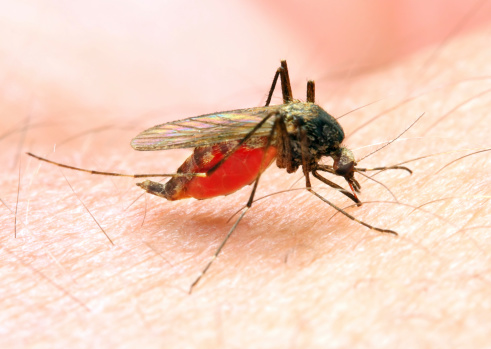
Countries across the Sub-Saharan African region should explore fiscal incentives that can stimulate investments in malaria control programs amid the quest to eradicate the tropical disease by 2030, experts said at a virtual forum on Wednesday ahead of World Malaria Day on April 25.
The health experts, policymakers and advocates said that achieving zero malaria targets in Africa is possible subject to adequate financing, political goodwill, research and community engagement.
Elizabeth Chizema, coordinator of Zambia’s End Malaria Council, said that domestic resource mobilization as opposed to over-reliance on dwindling foreign aid is key to bridging malaria funding shortfall in Africa.
“The private sector and home-grown philanthropies can help bridge the financing gap towards malaria control programs in the African continent that has worsened due to the COVID-19 pandemic,” said Chizema.
She said that the African Leaders Malaria Alliance whose current chair is Kenyan President Uhuru Kenyatta, has prioritized innovative financing as a strategy to aid the elimination of the disease in the continent.
“Government and the private sector continue to renew financial pledges and commitments that will be channeled to high-impact malaria control interventions like expanding access to mosquito-treated nets,” said Chizema.
In some high malaria burden African countries, the industry has supported procurement of commodities and public awareness campaigns on disease prevention, she added.
Hundreds of participants including policymakers, health experts and grassroots campaigners attended the virtual forum on malaria elimination organized by the World Health Organization (WHO) in conjunction with RBM Partnership to End Malaria.
Matshidiso Moeti, WHO regional director for Africa said eliminating malaria will boost economic and social outcomes in a continent that accounts for about 90 percent of global malaria caseload and fatalities.
“Malaria reduces Africa’s economic growth by 1.3 percent annually. It affects productivity and therefore lifesaving and cost-effective interventions should reach communities affected by the disease,” said Moeti.
She hailed milestones achieved in malaria vaccination targeting children below five years in Ghana, Kenya and Malawi, adding that targeted inoculations have hastened progress towards elimination of the vector-borne disease.
Amira Elfadil, African Union Commissioner for Social Affairs said that high burden malaria countries in Africa have renewed commitment to eradicate the disease in line with continental and global targets.
“Africa is making progress towards malaria elimination through strong political commitment and funding,” said Elfadil, adding that the momentum towards achieving zero malaria goal has gathered steam in the continent despite pandemic shocks.
Solomon Feleke, consultant at WHO STOP-Malaria Program in Botswana said that enhanced surveillance, timely diagnosis and treatment are key to boosting malaria control in Africa.
“Training of health workers, improving vector control and case management will deliver high impact and quality intervention for malaria eradication in the continent,” said Feleke.
Odinaka Kingsley Obeta, Zero Malaria champion from Nigeria said that African countries should leverage domestic financing, enhanced data collection, research and training of community health workers in order to boost the war against the disease.
“Long-term investments, use of real-time data to inform malaria interventions and youth-led campaigns are key to boosting progress towards disease elimination in Africa,” said Obeta.
Xinhua news Agency
 Africa -China Review Africa -China Cooperation and Transformation
Africa -China Review Africa -China Cooperation and Transformation
